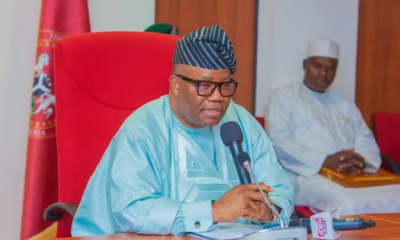With few days to the end of 2020, financial experts have argued that Nigeria’s inflation rate currently stands at 14.23 per cent and is expected to remain high in the first quarter of 2021.
Recall that the Federal Government has projected that Nigeria will likely exit recession by Q1 2021 amid the second wave of Covid-19 pandemic disrupting the financial markets, however the experts now anticipate more downside risks to the recovery of Africa’s largest economy in 2021.
According to Thelma Ugonna Ohiri-Anyanwo, a financial expert with one of Nigeria’s leading banks, inflation rate is expected to remain high, although the planned re-opening of the border and the upcoming harvest season may help ease food inflation in 2021.
She argued further that rate regimes are expected to remain low to encourage the recovery of the real sector, which would create great opportunities in the capital and alternative investment space.
“Globally, with the uncertainty around the pandemic, Covid-19 vaccine and the need to distribute and preserve the vaccine; we expect increased investment and revenue for medical (especially pharmaceutical), logistics and refrigerator manufacturing companies.
“Overall, the World Bank has forecasted that the Nigerian economy will marginally grow by 0.3% in 2021; So, I am hopeful that we will come out of the economic recession in 2021.”
Also commenting on what to expect in 2021, Tomie Balogun, founder of the Green Investment Club, said to satisfy the requirements of the $3.4 billion emergency support loan from the IMF and a $1.5 billion package to help boost post-Covid-19 recovery, another devaluation of the Naira may take place in 2021, so that the official exchange rates and NAFEX rates can be unified.
“If this takes place, the CBN will only step in if large fluctuations of the exchange rates occur.
According to him, fuel prices are likely to be determined automatically based on market forces. “The current VAT (7.5%) is likely to increase to generate additional revenue for the Federal Government of Nigeria. A hike in VAT will put a strain on the disposable income of medium to low-income earners,” he added.
The prospects of a COVID-19 vaccine by 2021 makes it likely the year of global economic recovery, says Darlington-Morsi Onyemaka, Co-founder, Quba Exchange. “There has been a significant amount of positive news in the financial markets already and a lot more is expected.
“The #EndSARS protest in Nigeria, however, has exposed the deficiencies in our political system. We saw government institutions hoarding and mismanaging palliatives that were supposed to mitigate the harsh conditions imposed by COVID-19 on the citizens.

 Featured1 week ago
Featured1 week ago
 Crime1 week ago
Crime1 week ago
 Featured1 week ago
Featured1 week ago
 Editorial4 days ago
Editorial4 days ago
 Business6 days ago
Business6 days ago
 Agribusiness2 days ago
Agribusiness2 days ago
 Business3 days ago
Business3 days ago
 Featured3 days ago
Featured3 days ago

